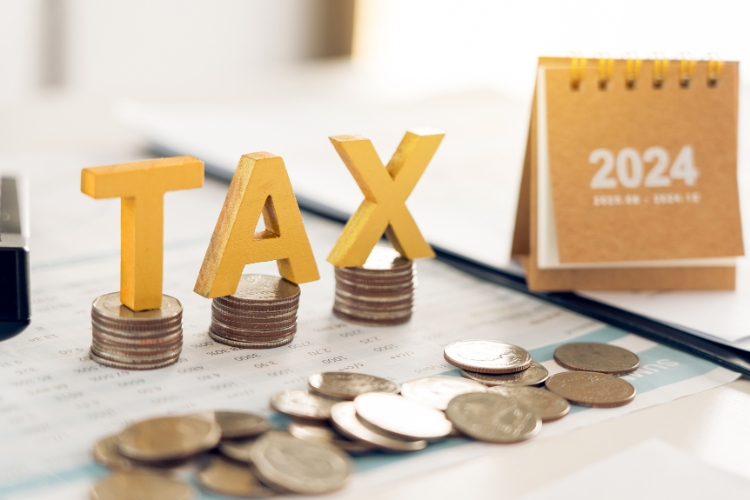Taxation is an important aspect of any business in Pakistan, and manufacturing businesses are no exception. The taxation system in Pakistan is governed by the Federal Board of Revenue (FBR) and includes various types of taxes, including income tax, sales tax, and customs duty. In this article, we will discuss the taxation of manufacturing businesses in Pakistan in detail.
Income Tax:
Income tax is a direct tax levied on the income of an individual or a company. In Pakistan, the income tax rate for manufacturing businesses is 29%. However, the tax rate may vary depending on the type of business entity and the amount of income earned. Manufacturing businesses are required to file their income tax returns annually, and the deadline for filing is September 30th of each year.
Manufacturing businesses are also required to deduct withholding tax on various payments, including salaries, rents, and contract payments. The withholding tax rates vary depending on the type of payment and the status of the payee.
Sales Tax:
Sales tax is an indirect tax levied on the sale of goods and services. In Pakistan, the standard sales tax rate is 17%, but certain goods and services may be exempt from sales tax or subject to a reduced rate. Manufacturing businesses are required to register for sales tax with the FBR and collect sales tax on their sales. They are also required to file sales tax returns on a monthly or quarterly basis.
Custom Duty:
Customs duty is a tax levied on goods imported into Pakistan. The customs duty rate varies depending on the type of goods and their country of origin. Manufacturing businesses that import raw materials or finished goods are required to pay customs duty on their imports. The customs duty paid on imports can be adjusted against sales tax or income tax liabilities.
Federal Excise Duty:
Federal excise duty is a tax levied on certain goods and services, including cigarettes, beverages, and petroleum products. Manufacturing businesses that produce or import goods or services subject to federal excise duty are required to register with the FBR and pay the applicable duty.
Provincial Taxes:
Provincial governments in Pakistan have the authority to levy certain taxes, including property tax, professional tax, and motor vehicle tax. The tax rates and rules may vary from province to province.
Other Taxes:
Other taxes that may be applicable to manufacturing businesses in Pakistan include:
- Workers Welfare Fund:
Manufacturing businesses with more than 10 employees are required to contribute to the Workers Welfare Fund, which is used to provide social security benefits to workers.
- Corporate Social Responsibility (CSR):
Manufacturing businesses with a certain level of annual profits are required to spend a certain percentage of their profits on CSR activities, such as education, health, and environment.
- Capital Value Tax (CVT):
Manufacturing businesses that buy or sell property are required to pay capital value tax, which is calculated as a percentage of the property value.
- Advance Tax:
Manufacturing businesses are required to pay advance tax on certain transactions, including imports, contract payments, and rent.
Examples:
To better understand the taxation of manufacturing businesses in Pakistan, let’s look at some examples:
Example 1:
A manufacturing business in Pakistan earns a net income of PKR 10 million in a year. The income tax liability for the business would be PKR 2.9 million (29% of PKR 10 million).
Example 2:
A manufacturing business imports raw materials worth PKR 5 million. The customs duty paid on the imports is PKR 1 million. The business can adjust the PKR 1 million against its sales tax or income tax liabilities.
Example 3:
A manufacturing business sells goods worth PKR 10 million in a month. The sales tax liability for the business would be PKR 1.7 million (17% of PKR 10 million).
Example 4:
A manufacturing business produces and sells cigarettes. The business is required to pay federal excise duty on the cigarettes sold.
Example 5:
A manufacturing business has an annual profit of PKR 50 million. The business is required to spend 2% of its profit on CSR activities, which amounts to PKR 1 million.
Example 6:
A manufacturing business buys a property worth PKR 20 million. The business is required to pay capital value tax of PKR 200,000 (1% of PKR 20 million).
Conclusion:
The taxation of manufacturing businesses in Pakistan is a complex and important issue. Manufacturing businesses are required to comply with various tax laws and regulations, including income tax, sales tax, customs duty, federal excise duty, and provincial taxes. They are also required to pay other taxes, such as Workers Welfare Fund contributions, CSR spending, capital value tax, and advance tax. Understanding the tax laws and regulations is crucial for manufacturing businesses to avoid penalties and ensure compliance. Seeking professional advice and assistance can also be helpful in navigating the tax system in Pakistan.



